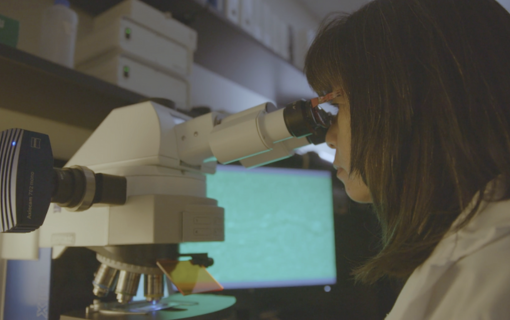Lupus
Under the Microscope
Lupus is a chronic condition that occurs when the immune system stops recognizing what is foreign – like a bacteria or virus – and starts attacking organs in the body. It causes widespread inflammation that can affect the heart, brain, kidneys, skin, and more – sometimes leading to irreversible damage.
Early diagnosis is essential to prevent organ damage. However, even in developed countries, there is often a delay of up to five years before someone is diagnosed. “This disease isn’t based on a single blood test or symptom, making it hard to diagnose,” said Dr. May Choi, a Research Scientist at Arthritis Research Canada. “Every lupus patient is different.”
Choi is spearheading research on lupus biomarkers, which are molecules found in the blood, muscles, or any fluid and tissue in the body. The goal is to identify biomarkers that are helpful in diagnosing lupus earlier and with more accuracy.
“If we can find a biomarker, or set of biomarkers, that allows us to diagnose lupus even before major symptoms develop, then we can start treatment early to prevent all the downstream complications,” Choi said.
In Episode 14 of the Arthritis Research Education Series, discover how Arthritis Research Canada’s scientists are working to understand how lupus develops in the body, find better treatments and drive research closer to a cure.
Want to support research like this & more?

Videos
Lupus is a difficult disease to diagnose. Discover how we're using biomarkers and machine learning to find answers.
Watch Episode & Webinar
Research
We're conducting research to diagnose lupus earlier, identify new medications and push closer to a cure.
Learn More
Additional Resources
Have questions about lupus and arthritis? We've got FAQs, helpful articles, resources and more.
Learn More
Feedback
Let us know what you think. Your feedback is important to us and helps inform future topics and episodes!
Learn More





















































